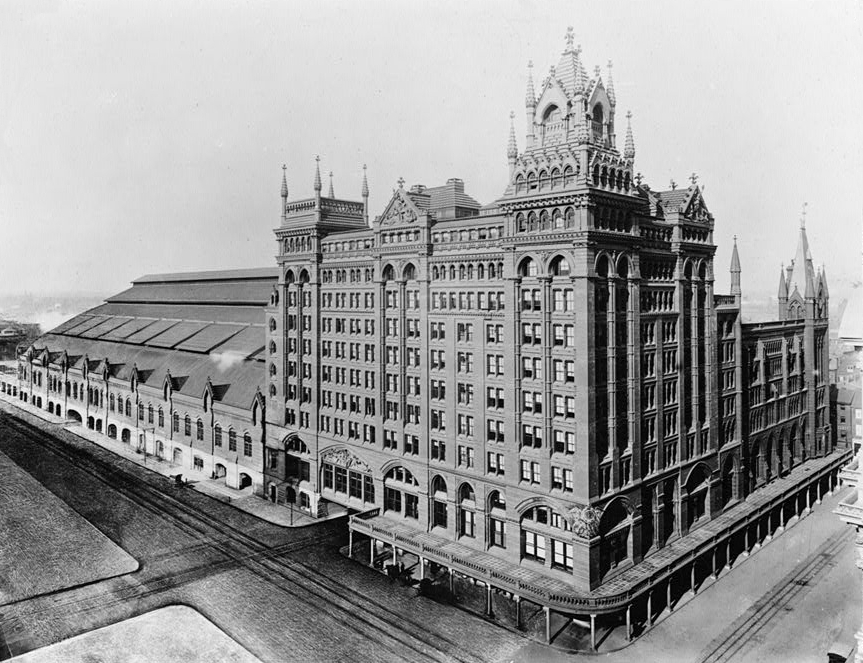 |
| Disston gumwood handle, from 1923 catalog |
Trowel handles can be made from wood or plastic. Wood handles are turned on a lathe from hardwoods like beech, maple, hickory, ash, and
gumwood. Woods are chosen for their resistance to checking, splintering, and splitting. Top quality and ceremonial trowels may have wood handles wrapped with leather or mahogany or other tropical wood. Possible factory finishes for trowel handles include shellac, lacquer, and urethane, depending on the trowel's age.
.jpg) |
| W. Rose Tenite handle |
One way to identify older trowels is by the amount of work needed to turn the handle. Earlier trowels may have a distinctive shape and one or more decorative rings. Later trowels have smooth handles with a simple profile. Some mid-20th century American trowels had the maker's name stamped in the handle (Rose) or ferrule (Disston).
Plastic trowel handles have been made for at least 50 years. Tenite is an Eastman trademark* for cellulose acetate butyrate, which dates to 1938. Goldblatt, Marshalltown, and W. Rose have all used cellulose acetate butyrate for brick trowel handles. Alcohol and petroleum solvents will degrade cellulose acetate butyrate.
Other composite handles use plastic and synthetic rubber, including a red acrylic Marshalltown handle.
Major US trowel manufacturers sell replacement wood and plastic handles.
W. Rose Handle Styles
 |
| W. Rose foundry molding trowel handle |
 |
| Marshalltown 19P10, red acrylic handle |
*Quote from Eastman: “Tenite cellulosic plastics are noted for their good balance of properties - toughness, hardness, strength, surface gloss, clarity, and a warm feel. Tenite cellulosic plastics are available in natural, clear, selected ambers or smoke transparents and black translucent.”










 Lancaster, Pa., was then “the west” and stagecoaches
thence met those from Baltimore in front of W. Rose’s door turning from the old
turnpike into Market, then called High street, on the last stretch of their
journey. Philadelphia was the capitol of the United States. George Washington
had just left it to pass into that retirement for which he eagerly had longed.
Then also war was paralyzing Europe. American ships were destroyed and this
encouraged Rose in his competition with more powerful manufacturers of the old
world. Thanks to the shifting character of building trades the stage coach
which rattled over the cobbles before William Rose’s door needed to carry no
publicity agent other than roaming customers who spread his reputation
throughout English-speaking America.
Lancaster, Pa., was then “the west” and stagecoaches
thence met those from Baltimore in front of W. Rose’s door turning from the old
turnpike into Market, then called High street, on the last stretch of their
journey. Philadelphia was the capitol of the United States. George Washington
had just left it to pass into that retirement for which he eagerly had longed.
Then also war was paralyzing Europe. American ships were destroyed and this
encouraged Rose in his competition with more powerful manufacturers of the old
world. Thanks to the shifting character of building trades the stage coach
which rattled over the cobbles before William Rose’s door needed to carry no
publicity agent other than roaming customers who spread his reputation
throughout English-speaking America.
.jpg)


.jpg)
.jpg)






.jpg)
.jpg)
.jpg)




.jpg)
.jpg)

.jpg)


